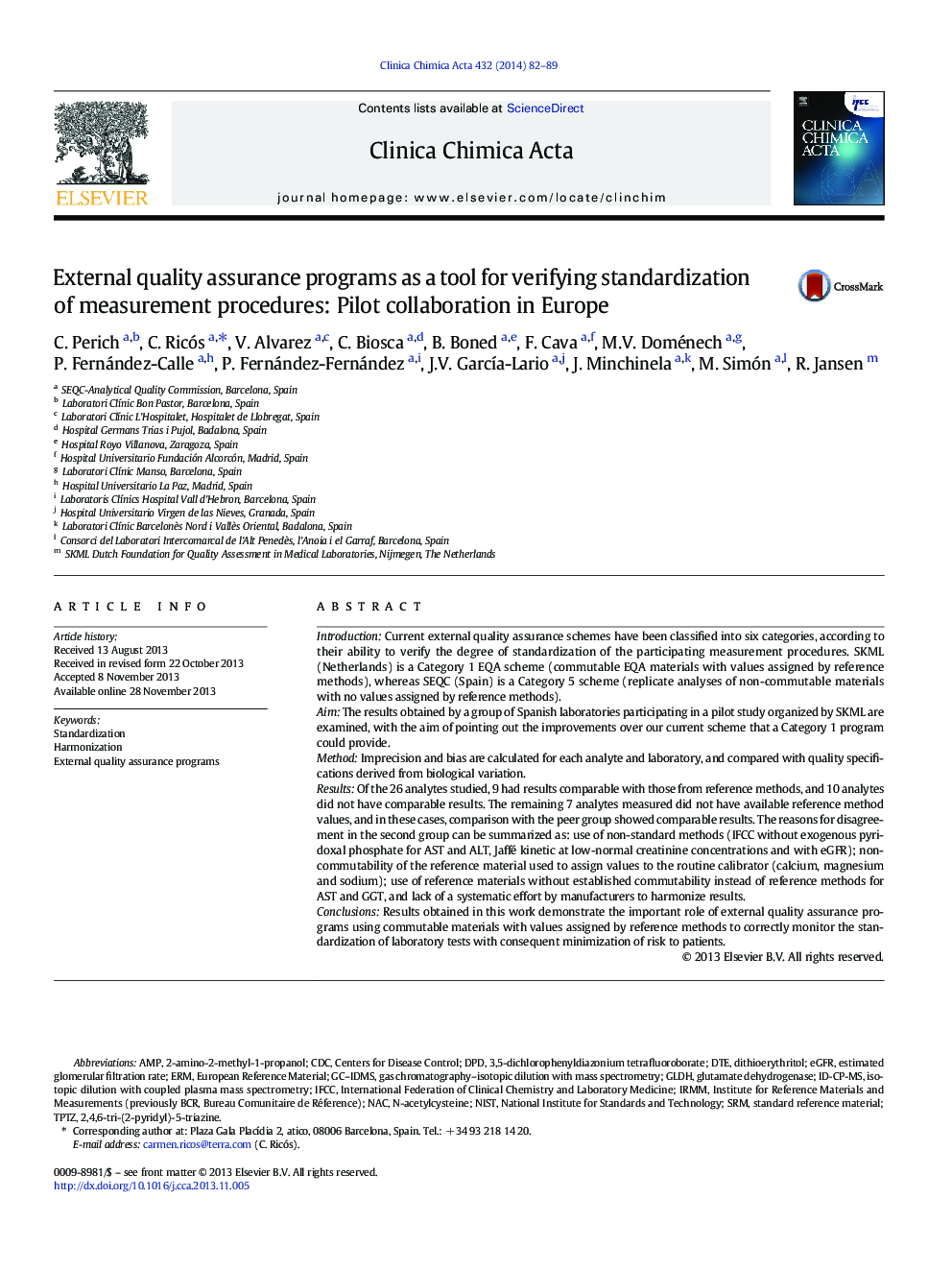| کد مقاله | کد نشریه | سال انتشار | مقاله انگلیسی | نسخه تمام متن |
|---|---|---|---|---|
| 1965424 | 1538666 | 2014 | 8 صفحه PDF | دانلود رایگان |
• 10 Spanish laboratories used commutable controls with reference method values.
• 10 out of the 26 analytes studied did not have comparable results. Reasons were.
• Use of non-standard methods for AST and ALT, and Jaffé for creatinine and eGFR.
• Routine calibrators traceable to non-commutable standards (calcium, magnesium, sodium).
• Use of reference materials instead of reference methods for AST and GGT.
IntroductionCurrent external quality assurance schemes have been classified into six categories, according to their ability to verify the degree of standardization of the participating measurement procedures. SKML (Netherlands) is a Category 1 EQA scheme (commutable EQA materials with values assigned by reference methods), whereas SEQC (Spain) is a Category 5 scheme (replicate analyses of non-commutable materials with no values assigned by reference methods).AimThe results obtained by a group of Spanish laboratories participating in a pilot study organized by SKML are examined, with the aim of pointing out the improvements over our current scheme that a Category 1 program could provide.MethodImprecision and bias are calculated for each analyte and laboratory, and compared with quality specifications derived from biological variation.ResultsOf the 26 analytes studied, 9 had results comparable with those from reference methods, and 10 analytes did not have comparable results. The remaining 7 analytes measured did not have available reference method values, and in these cases, comparison with the peer group showed comparable results. The reasons for disagreement in the second group can be summarized as: use of non-standard methods (IFCC without exogenous pyridoxal phosphate for AST and ALT, Jaffé kinetic at low-normal creatinine concentrations and with eGFR); non-commutability of the reference material used to assign values to the routine calibrator (calcium, magnesium and sodium); use of reference materials without established commutability instead of reference methods for AST and GGT, and lack of a systematic effort by manufacturers to harmonize results.ConclusionsResults obtained in this work demonstrate the important role of external quality assurance programs using commutable materials with values assigned by reference methods to correctly monitor the standardization of laboratory tests with consequent minimization of risk to patients.
Journal: Clinica Chimica Acta - Volume 432, 15 May 2014, Pages 82–89
